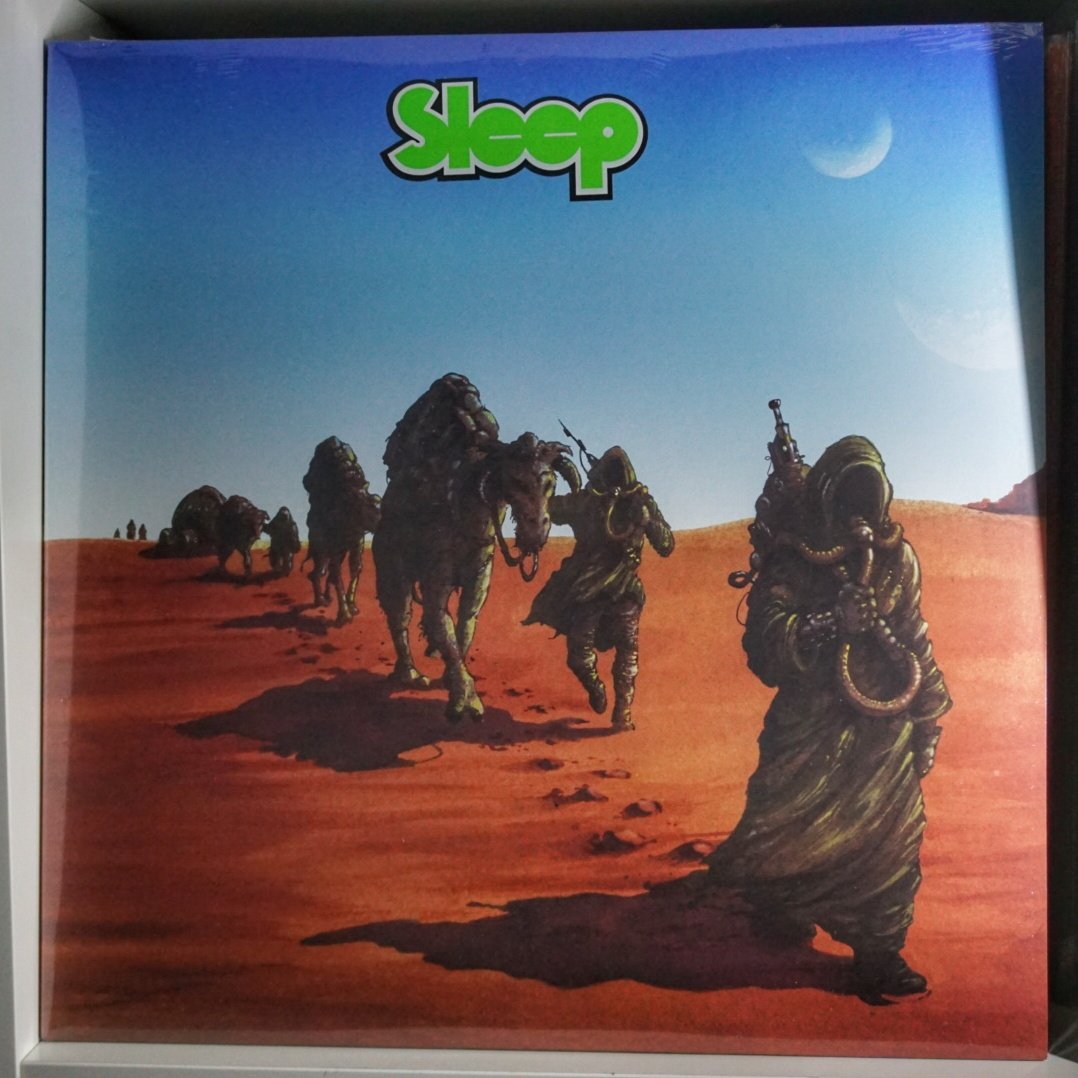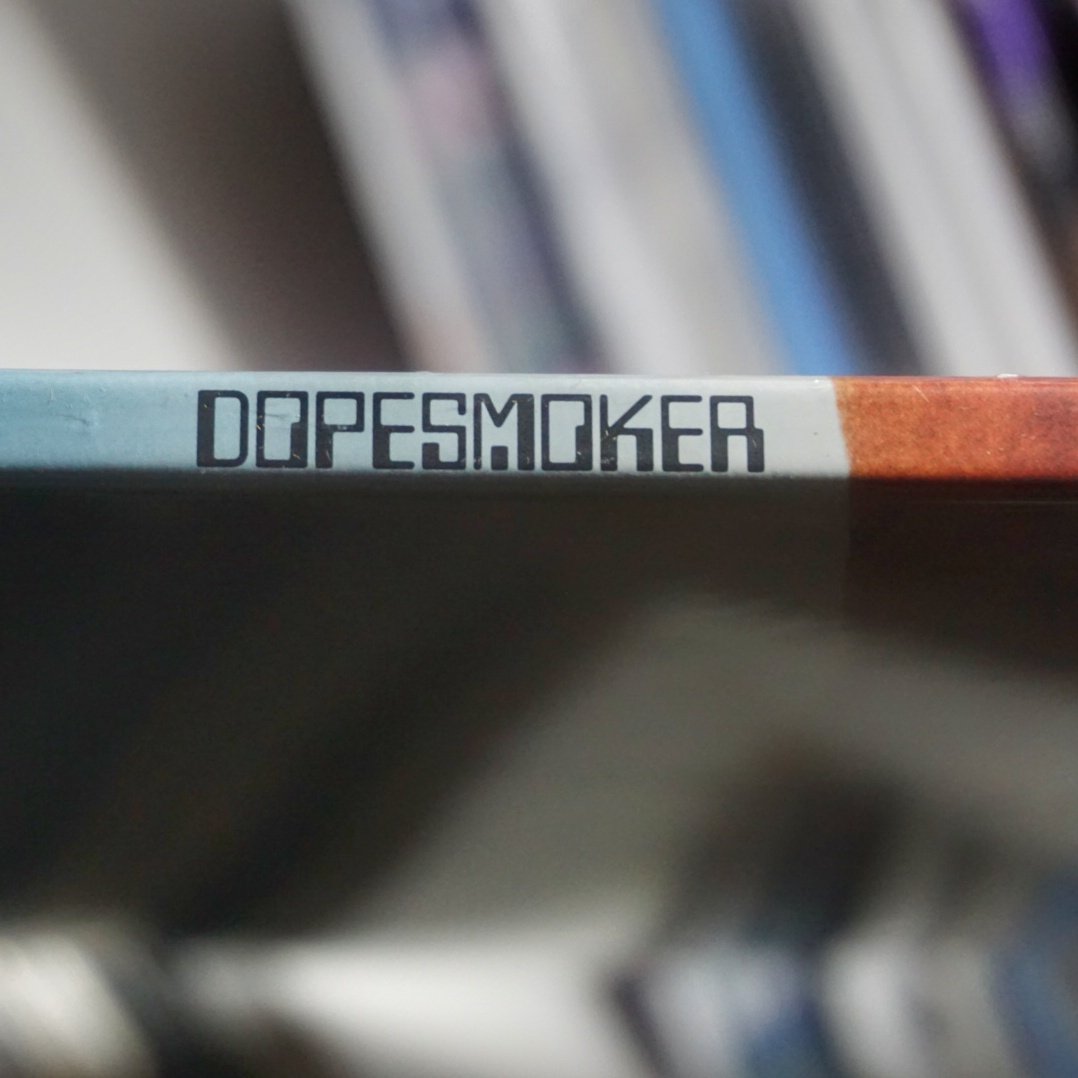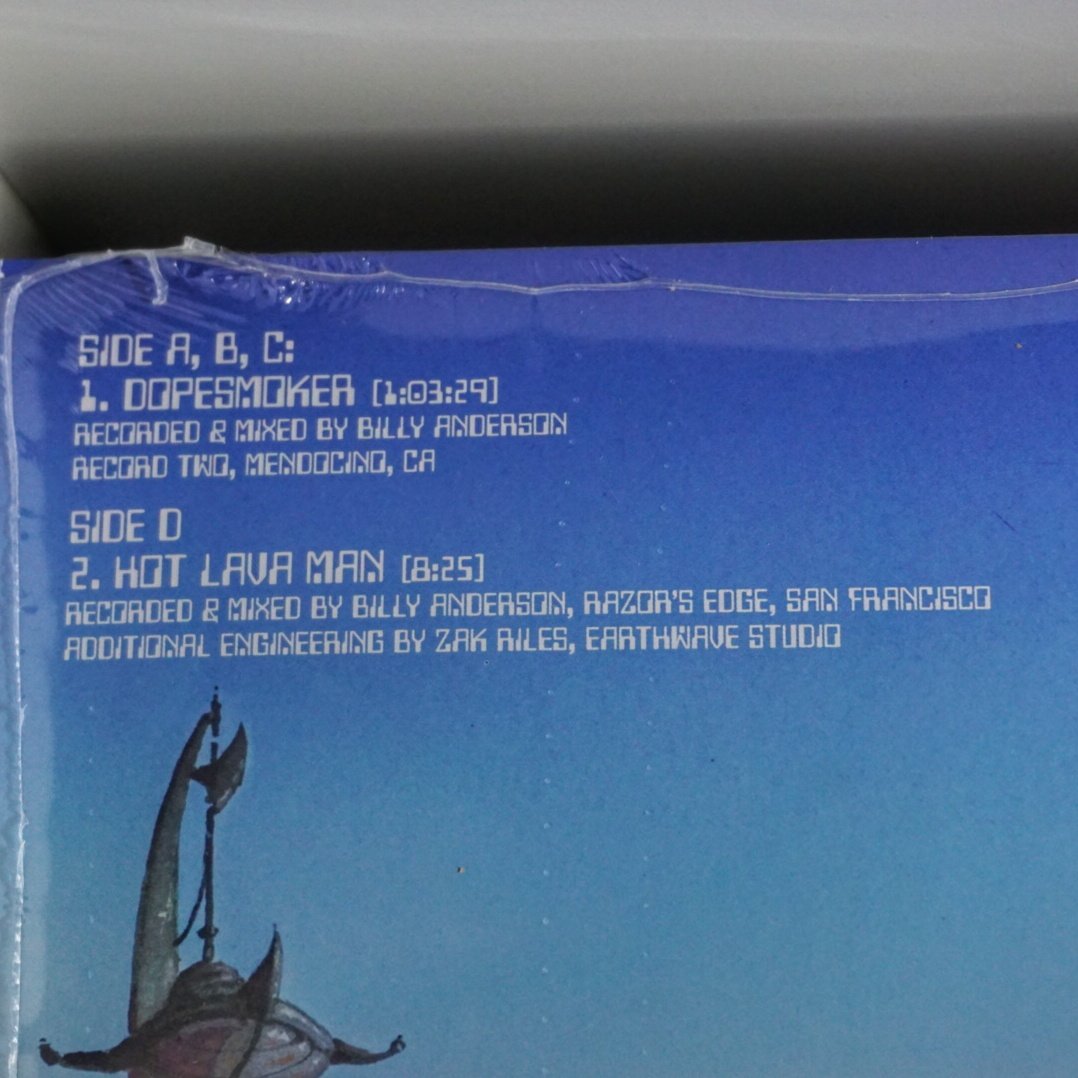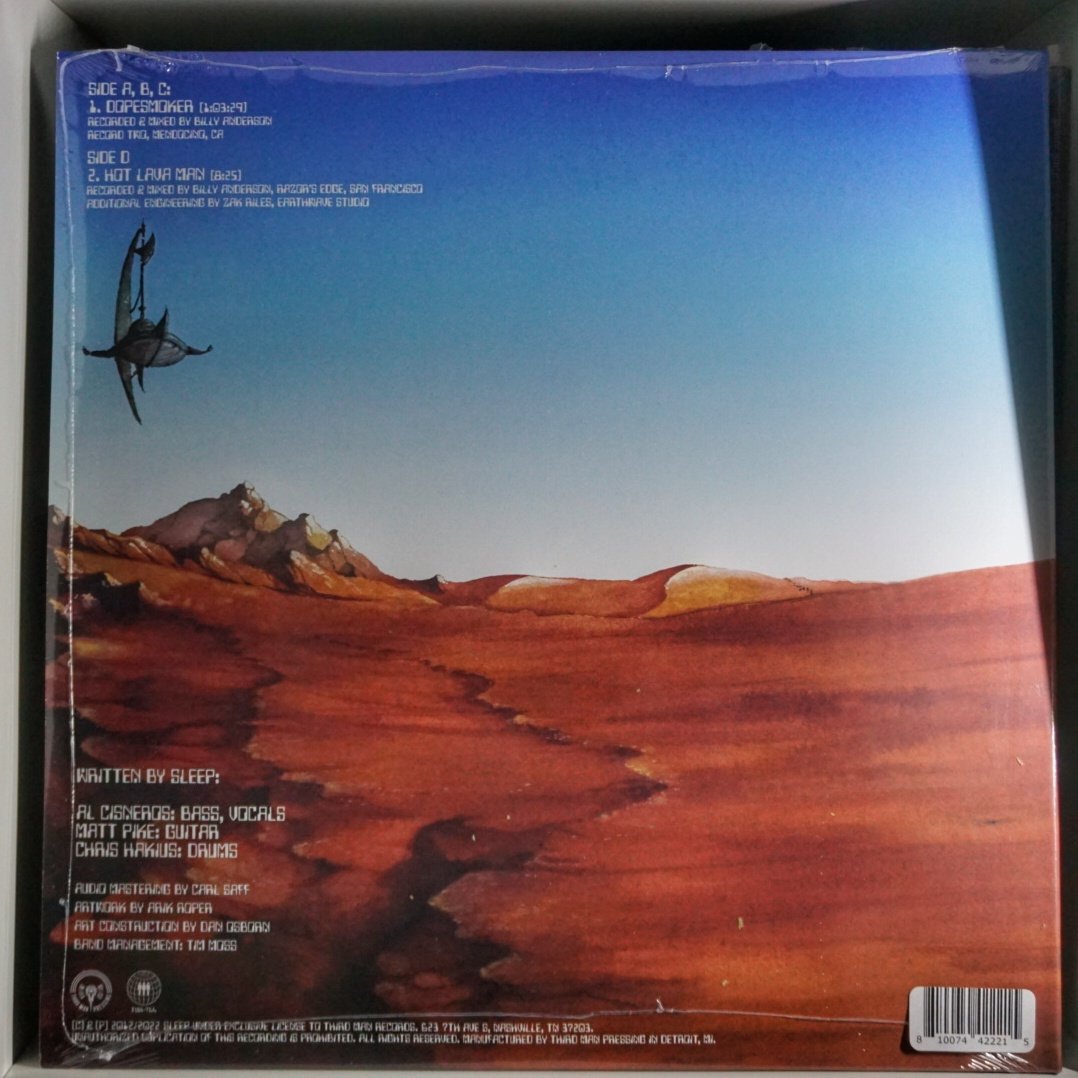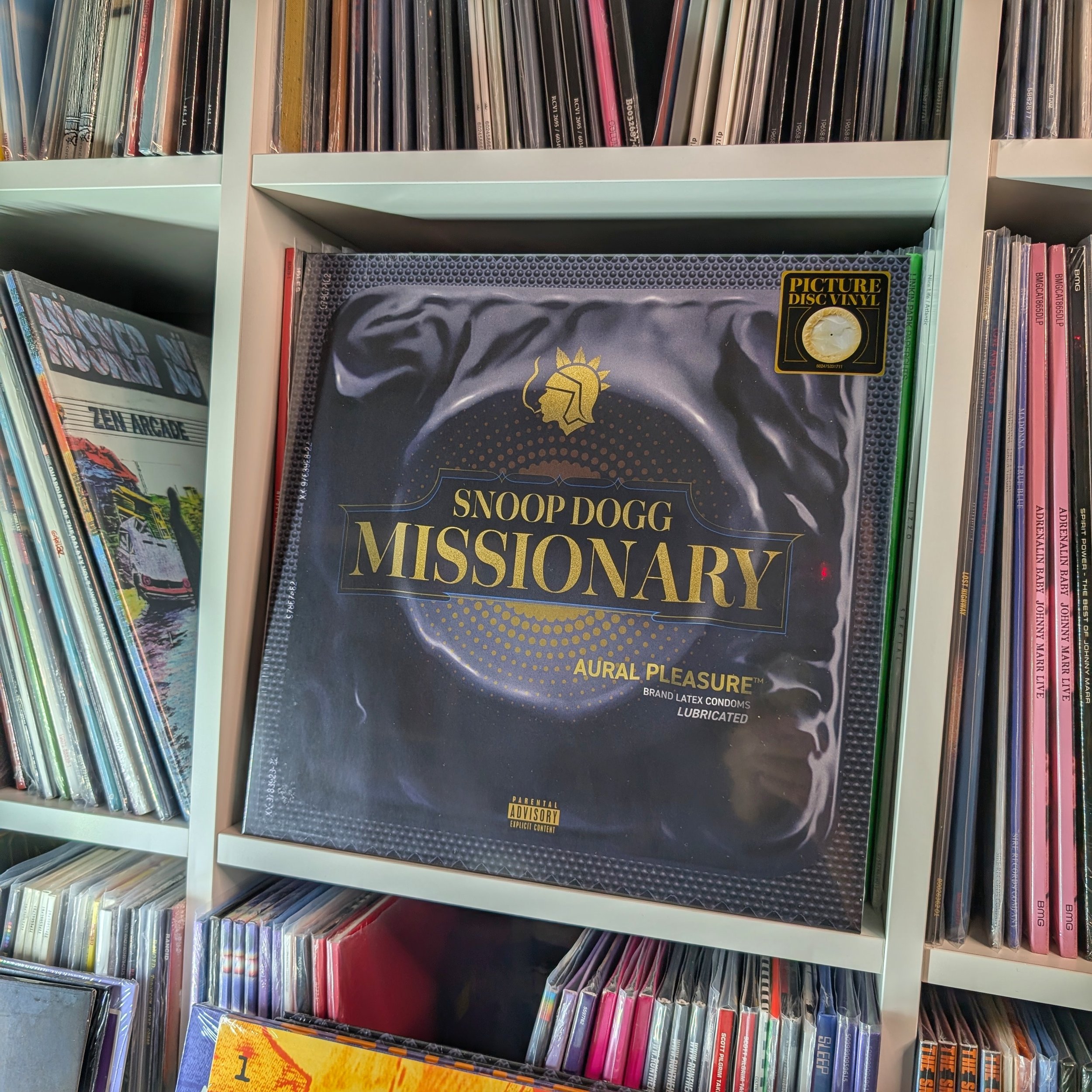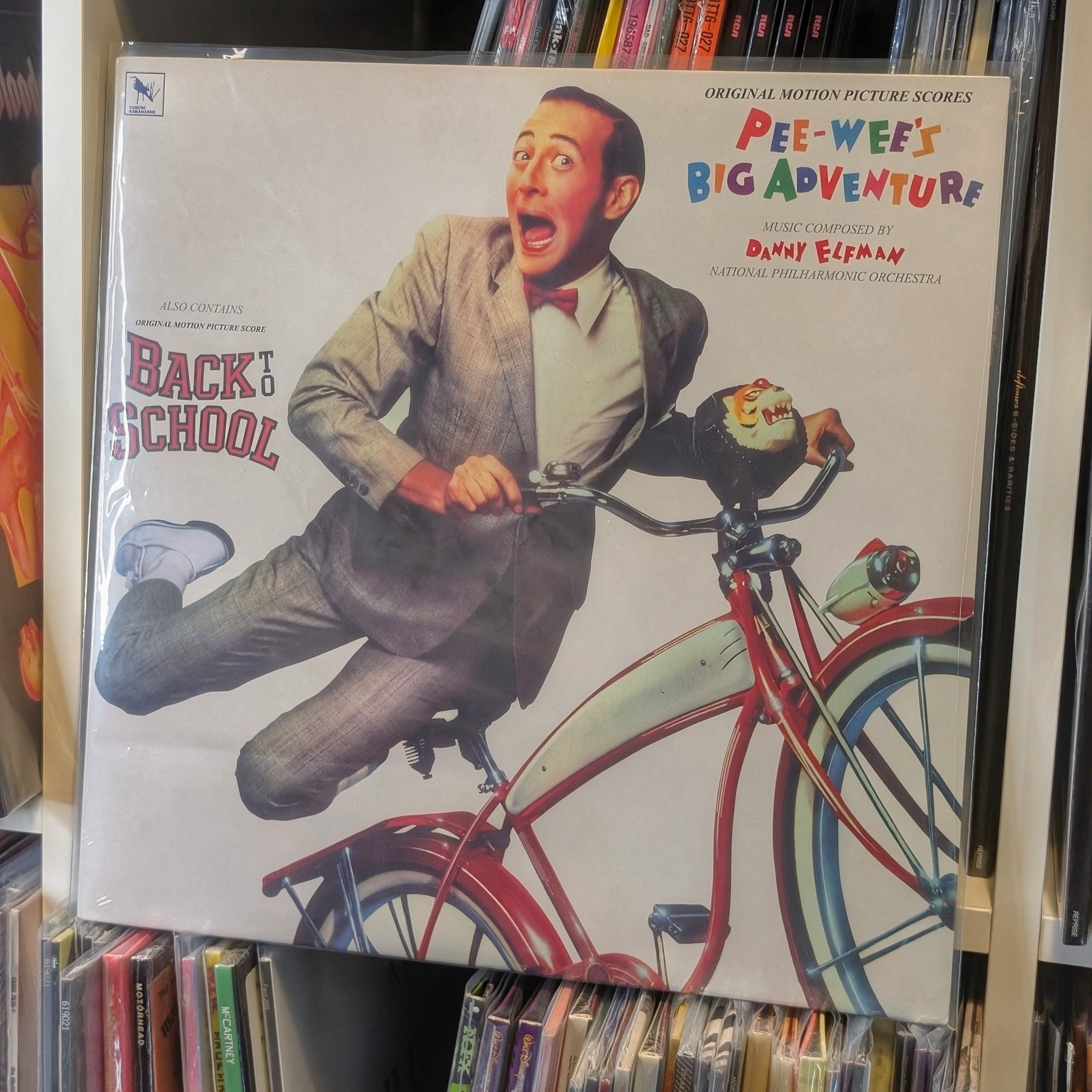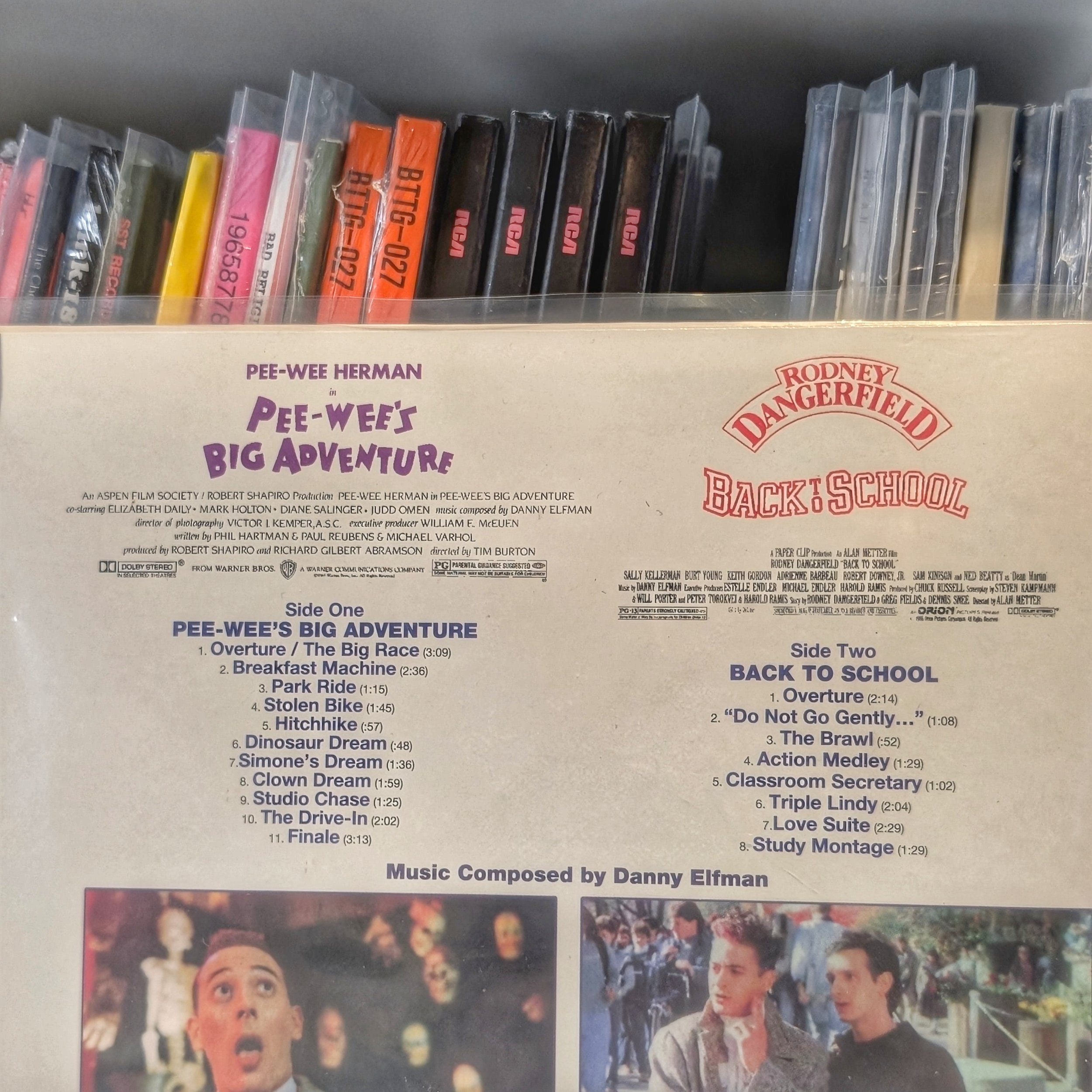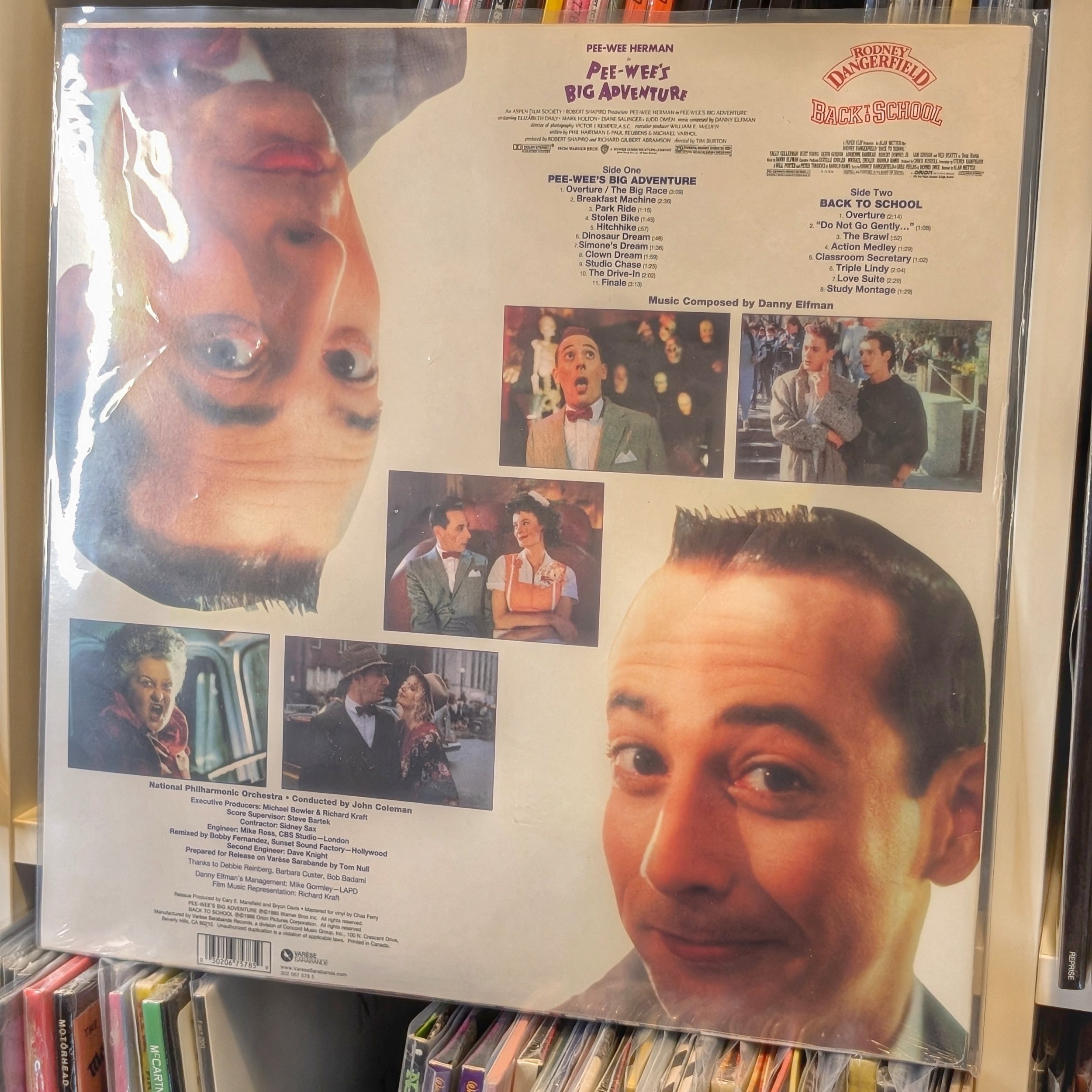Sleep - Dopesmoker (black vinyl)
Jerusalem and Dopesmoker are two versions of the third studio album by the American stoner doom band Sleep. The former title was released in 1999 by The Music Cartel and the latter was released by Tee Pee Records in 2003. The music for these albums comprises an extended hour-length piece (either split into multiple shorter tracks or presented as a single track), developed over four years and recorded in 1996 under the auspices of Sleep's label at the time, London Records.
When recording had completed, London was unhappy with the finished product and refused to release it, leading to Sleep's disbandment and the album surfacing on bootlegs and unauthorized indie releases in subsequent years.
All versions of the album received very positive reception from music critics, who described it as a high-water mark in both the stoner metal and doom metal genres.
Jerusalem and Dopesmoker are two versions of the third studio album by the American stoner doom band Sleep. The former title was released in 1999 by The Music Cartel and the latter was released by Tee Pee Records in 2003. The music for these albums comprises an extended hour-length piece (either split into multiple shorter tracks or presented as a single track), developed over four years and recorded in 1996 under the auspices of Sleep's label at the time, London Records.
When recording had completed, London was unhappy with the finished product and refused to release it, leading to Sleep's disbandment and the album surfacing on bootlegs and unauthorized indie releases in subsequent years.
All versions of the album received very positive reception from music critics, who described it as a high-water mark in both the stoner metal and doom metal genres.
Jerusalem and Dopesmoker are two versions of the third studio album by the American stoner doom band Sleep. The former title was released in 1999 by The Music Cartel and the latter was released by Tee Pee Records in 2003. The music for these albums comprises an extended hour-length piece (either split into multiple shorter tracks or presented as a single track), developed over four years and recorded in 1996 under the auspices of Sleep's label at the time, London Records.
When recording had completed, London was unhappy with the finished product and refused to release it, leading to Sleep's disbandment and the album surfacing on bootlegs and unauthorized indie releases in subsequent years.
All versions of the album received very positive reception from music critics, who described it as a high-water mark in both the stoner metal and doom metal genres.

